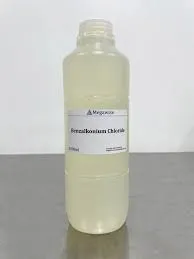flocculation chemicals
Flocculation Understanding the Role of Flocculation Chemicals
Flocculation is a critical process in water treatment, wastewater management, and various industrial applications. The term refers to the agglomeration of fine particles in a liquid to form larger aggregates, known as flocs. This process significantly enhances the efficiency of sedimentation and filtration, leading to improved water clarity and quality. At the heart of flocculation is the use of flocculation chemicals, which play an essential role in facilitating the agglomeration process.
Flocculation chemicals are substances added to a suspension to promote the formation of flocs. These chemicals typically fall into several categories, including coagulants, flocculants, and polyelectrolytes. Coagulants, such as aluminum sulfate or ferric chloride, work by neutralizing the charges on suspended particles, allowing them to come together. Once the initial coagulation occurs, flocculants, which are usually long-chain polymers, provide additional bridging effects that help bind these particles into larger structures.
Flocculation Understanding the Role of Flocculation Chemicals
In wastewater treatment, flocculation plays a crucial role in separating solids from liquids. After primary treatment, where large solids are removed, secondary treatment focuses on degrading organic material. Here, flocculation chemicals enhance the efficiency of sedimentation tanks by forming larger flocs that settle more quickly. This leads to improved removal rates of suspended solids and significantly reduces the organic load on the subsequent treatment processes.
flocculation chemicals

Industrial applications also leverage flocculation chemicals. In industries such as mining, pulp and paper, textiles, and food processing, the need to separate solids from liquids is critical. For example, in paper manufacturing, flocculation assists in the recovery of fibers and fillers from process water, helping to minimize waste and improve resource efficiency. Similarly, in mining operations, flocculants are used in the separation of metals from ore slurries, increasing yield and reducing environmental impact.
The selection of appropriate flocculation chemicals is contingent on several factors, including the type of suspended matter, the desired floc size, and the overall characteristics of the water or wastewater being treated. Each application may require different formulations, and therefore a comprehensive understanding of the chemical interactions involved is essential. It’s also important to consider the environmental impact of these chemicals; some flocculants can be biodegradable, while others may pose risks if not managed properly.
Moreover, the effectiveness of flocculation chemicals can be influenced by pH, temperature, and the presence of other ions in the solution. Therefore, regular monitoring and optimization are crucial to ensure the flocculation process operates efficiently.
In conclusion, flocculation and flocculation chemicals are indispensable components in water treatment and various industrial processes. By promoting the consolidation of particles, these chemicals significantly enhance the clarity and quality of water while also supporting sustainable practices across several industries. As the need for clean water continues to grow, understanding and optimizing flocculation processes will remain essential in addressing global water challenges. The ongoing development of new and more effective flocculation chemicals will also play a pivotal role in shaping future water treatment technologies.
-
Water Treatment with Flocculant Water TreatmentNewsJun.12,2025
-
Polymaleic AnhydrideNewsJun.12,2025
-
Polyaspartic AcidNewsJun.12,2025
-
Enhance Industrial Processes with IsothiazolinonesNewsJun.12,2025
-
Enhance Industrial Processes with PBTCA SolutionsNewsJun.12,2025
-
Dodecyldimethylbenzylammonium Chloride SolutionsNewsJun.12,2025





